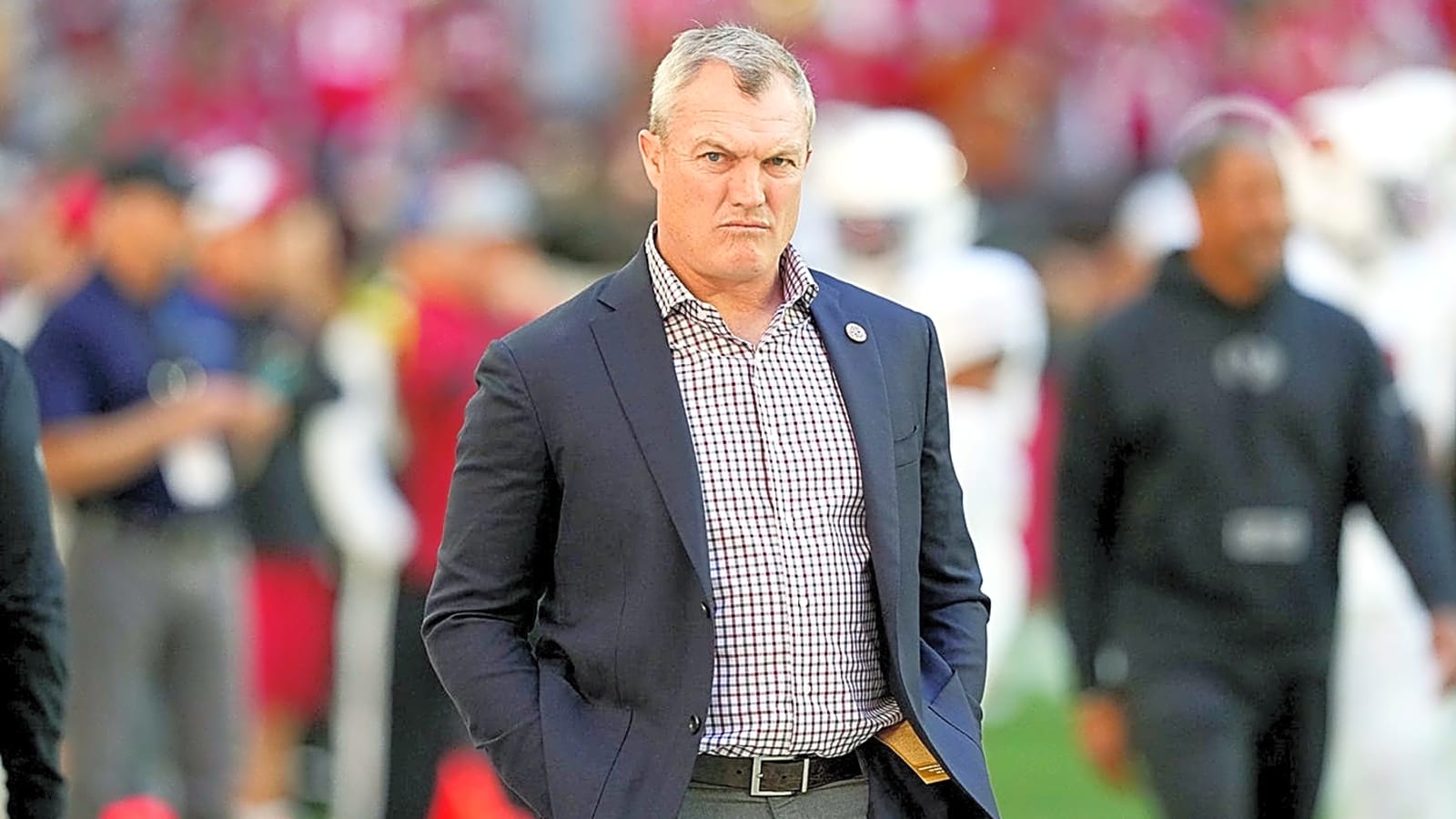This year, the 49ers find themselves in a quite unique situation. They have several gaps in the lineup, but they are not a terrible team. When John Lynch and Kyle Shanahan came to Santa Clara, the team’s roster was in poor shape. There were hardly any skillful players. Thus, when they held the draft, they were able to select any number of individuals in any round to enhance the team. They were not limited to a specific role, nor were they focused on a particular skill set. It was a construction project that everyone anticipated would likely take three years to regain significance.
This year is different. The 49ers urgently require athletes for certain roles, most notably on the defensive line (including defensive end/edge rusher and defensive tackle) and the offensive line (any of the three positions, with an emphasis on guard and tackle). There is extra pressure to select a competent offensive tackle since Colton McKivitz isn’t a strong performer, and Trent Williams will probably retire in the next year or two and needs to be replaced. Bringing in a player who can begin as a right tackle now (or possibly a left guard) and then transition to left tackle when Williams retires would significantly ease the pressure on Lynch to find a replacement down the line.
In addition, McKivitz will be a free agent next year, and typically, Lynch does not spend significant money on average players. This is the reason that Laken Tomlinson, Jaylon Moore, and Mike McGlinchey are off the roster now (And I fully support Lynch’s approach).
To write effectively, Lynch must follow certain guidelines and remain consistent with them.
Initially, don’t impose it.
This draft lacks significant depth at the offensive tackle position. Three tackles are considered deserving of the 11th pick: Armand Membou, Will Campbell, and Kelvin Banks Jr. While Membou and Campbell are unlikely to be accessible when the 49ers select, Banks could be available. He enjoyed an outstanding career at Texas and would be a great match.
If all three are absent, Lynch shouldn’t push it. Avoid selecting a player who would solely be a right tackle. Certain tackles will be accessible in the 2nd round that would fit that.
I concentrate on the offensive line since this draft brims with defensive tackles, and there are several excellent edge rushers as well. Regarding the value of the 11th pick, there are only a limited number of defensive tackles deserving of the selection: Mason Graham (who will likely be off the board) and Walter Nolen, who is said to have some concerns about his work ethic. I’m really fond of Derrick Harmon from Oregon, but trading back would be a better fit for him.
Avoid betting
Multiple mock drafts suggest that the 49ers will choose Shemar Stewart, the edge rusher from Texas A&M. Absolutely not. He is reportedly a high-risk, high-reward selection. Besides the absurd figures he posted in shorts at the Combine, he lacks any production. Over 31 games, he recorded 4.5 sacks—averaging 1.5 each year. Now, he’s in the SEC, competing against several All-Americans. Last year, for example, he recorded his sacks versus Bowling Green State and Florida, but he had none against New Mexico State, and none against McNeese State. These are teams against which you can enhance your statistics.
If you select a player with the 11th pick, he ought to have shown performance in college (See: Mike Green, 17 sacks at Marshall, who then excelled against top-tier linemen at the Senior Bowl). San Francisco requires players who can contribute immediately, not those to develop. The 11th selection needs to be impactful right away, not a player everyone wishes will develop. The 49ers can’t afford that.
No future “preparedness”
Another player I have often witnessed being linked to the Niners is Will Johnson, the cornerback out of Michigan. Currently, Johnson is an outstanding corner, potentially the top one in this class apart from Travis Hunter, but he suffers from injuries. Last year, he was unable to play in multiple games due to turf toe. He was unable to compete at the Combine due to a hamstring problem. And then he withdrew from his pro day.
The 49ers ought to steer clear of players susceptible to injuries or those recovering from them and “should be prepared by camp.” The athlete should be able to step onto the training ground immediately.
Unfortunately, San Francisco has a history of selecting players who have physical and emotional challenges. In Lynch’s inaugural year, they chose Reuben Foster, a remarkable player yet a problematic individual. He didn’t survive the year. Joe Williams, selected in the fourth round, dealt with emotional issues. If someone claims, “I believe we possess the veteran leadership to … ,” the response should be assertively, “Walk away.” This isn’t college where freshmen are supervised in a dormitory.
In 2019, Lynch selected Jalen Hurd as a versatile receiver/running back, but he was unable to maintain his health. One of the most significant was Javon Kinlaw in 2020, selected 14th overall, intended to succeed DeForest Buckner. There’s no question that Kinlaw possesses talent. It is also undeniable that it was a squandered selection. Following the Trey Lance trade, they chose Drake Jackson with one of their limited remaining picks. He seldom plays.
These were not instances of misfortune. It’s not that Kinlaw was entirely healthy and then got hurt during training camp. That’s unfortunate luck, particularly for the young man, but it wouldn’t have been an unwise choice. Each of the players mentioned had recognized issues during the draft.
The 49ers shouldn’t select an injured corner with their first choice, someone struggling with stability in life, or whose future seems unrealistic. This is a draft that John Lynch must achieve. He must focus solely on players who meet the criteria of physical and emotional well-being, output, and maturity. There are many players who are of starting quality. The 49ers must select one with every choice.
